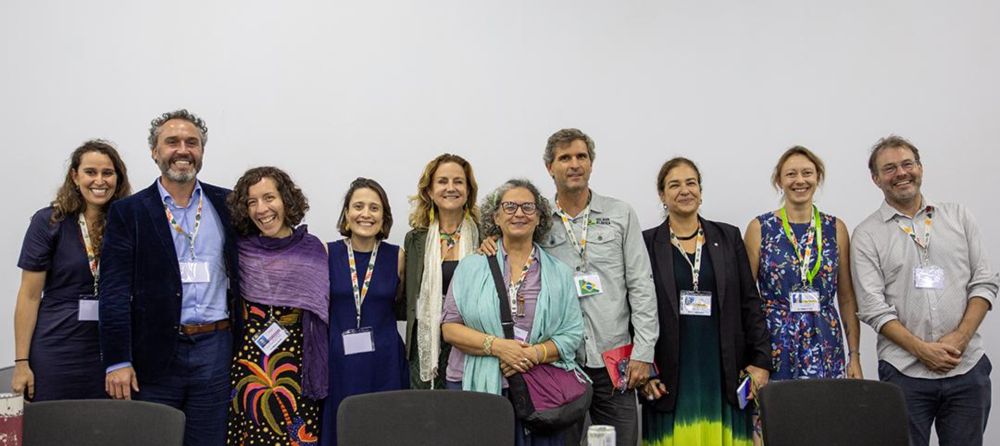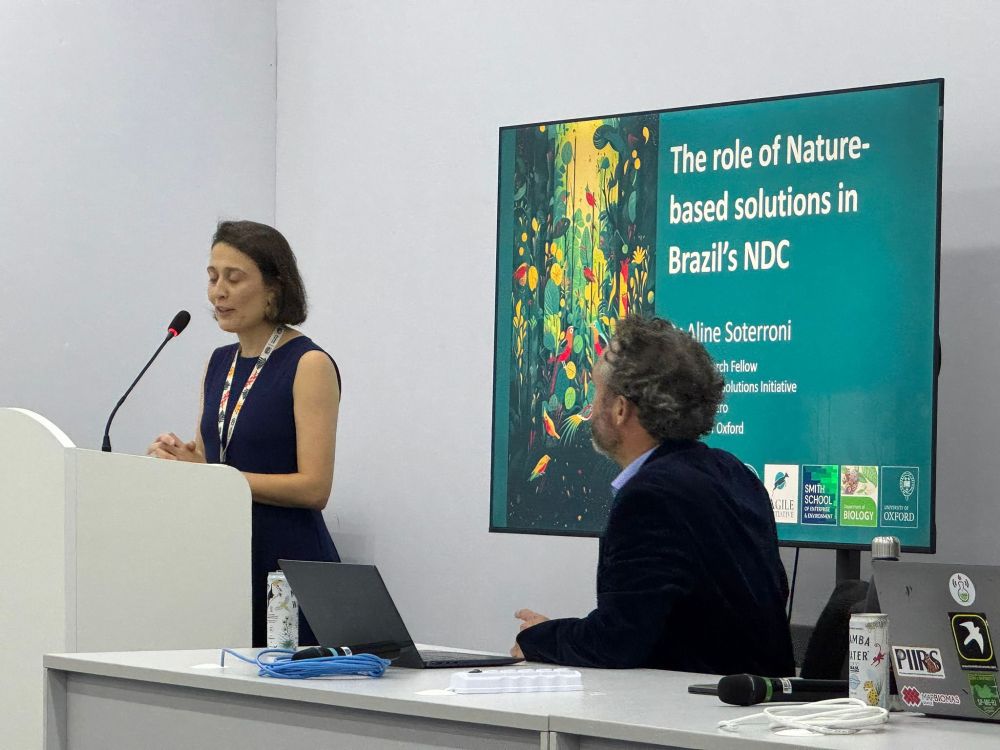
www.biology.ox.ac.uk
Reach out to our academics to discuss these or more options if you have an idea of your own 👇
bit.ly/dphilbio25
@biology.ox.ac.uk @jesusoxford.bsky.social
news.mongabay.com/short-articl...

@biology.ox.ac.uk @jesusoxford.bsky.social
news.mongabay.com/short-articl...
@biology.ox.ac.uk
@oxfordnetzero.bsky.social
@smithschool.ox.ac.uk
@biology.ox.ac.uk
@oxfordnetzero.bsky.social
@smithschool.ox.ac.uk
A Nature Reviews Biodiversity paper from Josh Firth @universityofleeds.bsky.social Sarah Knowles @biology.ox.ac.uk & Ivan Jarić @ivanjaric.bsky.social
bit.ly/4iisAJR

A Nature Reviews Biodiversity paper from Josh Firth @universityofleeds.bsky.social Sarah Knowles @biology.ox.ac.uk & Ivan Jarić @ivanjaric.bsky.social
bit.ly/4iisAJR
Research is at the heart of all we do, with excellent science leading to demonstrable conservation impacts.
The report gives a snapshot of how our team are achieving this worldwide thanks to the generous support of many.
👉 tinyurl.com/mth52xm9
@biology.ox.ac.uk

Research is at the heart of all we do, with excellent science leading to demonstrable conservation impacts.
The report gives a snapshot of how our team are achieving this worldwide thanks to the generous support of many.
👉 tinyurl.com/mth52xm9
@biology.ox.ac.uk

The Life and Mind building is one of the largest building projects in the University’s history, and home to @biology.ox.ac.uk and @oxexppsy.bsky.social, as well as @ineosoxford.bsky.social

The Life and Mind building is one of the largest building projects in the University’s history, and home to @biology.ox.ac.uk and @oxexppsy.bsky.social, as well as @ineosoxford.bsky.social
Read the study led by Jonathan Growcott 👉 onlinelibrary.wiley.com/doi/10.1002/...
[1/3] @biology.ox.ac.uk @exeter.ac.uk
Read the study led by Jonathan Growcott 👉 onlinelibrary.wiley.com/doi/10.1002/...
[1/3] @biology.ox.ac.uk @exeter.ac.uk
As we celebrate its official opening, here’s a look back at how far this building has come over the past six years.
We can’t wait to see everything it will make possible.
As we celebrate its official opening, here’s a look back at how far this building has come over the past six years.
We can’t wait to see everything it will make possible.
bit.ly/4pbzoeg
📸C.Mower




bit.ly/4pbzoeg
📸C.Mower
16 December 17:15, in the Life and Mind Building, Oxford & online 👇
www.biology.ox.ac.uk/event/biolog...

16 December 17:15, in the Life and Mind Building, Oxford & online 👇
www.biology.ox.ac.uk/event/biolog...
New article (in Portuguese) from Aline Soterroni of @naturebasedsols.bsky.social 👇
theconversation.com/para-alcanca...

New article (in Portuguese) from Aline Soterroni of @naturebasedsols.bsky.social 👇
theconversation.com/para-alcanca...
The research also suggests that humans and Neanderthals likely kissed each other.

The research also suggests that humans and Neanderthals likely kissed each other.
I'm setting a reminder now to repost this story on #valentinesday 😍😘😗because nothing says 'romance' like 'oral microbes', right? Mwah!
theconversation.com/when-did-kis...

I'm setting a reminder now to repost this story on #valentinesday 😍😘😗because nothing says 'romance' like 'oral microbes', right? Mwah!
theconversation.com/when-did-kis...
New study from @matildabrindle.bsky.social @stuwest.bsky.social 👇

New study from @matildabrindle.bsky.social @stuwest.bsky.social 👇
80 years ago, penicillin changed modern medicine - but how does it work? And how do bacteria resist?
👉Read more to learn how the IOI protects our life-saving antibiotics: ineosoxford.shorthandstories.com/80-years-of-...
#WAAW #KeepAntibioticsWorking

80 years ago, penicillin changed modern medicine - but how does it work? And how do bacteria resist?
👉Read more to learn how the IOI protects our life-saving antibiotics: ineosoxford.shorthandstories.com/80-years-of-...
#WAAW #KeepAntibioticsWorking
I’m very happy to share that yesterday, after ~4 years of research, I successfully defended my DPhil thesis and will be awarded the title of doctor 😎
Thank you to my examiners, supervisors, and collaborators for all the advice and support given along the way.

I’m very happy to share that yesterday, after ~4 years of research, I successfully defended my DPhil thesis and will be awarded the title of doctor 😎
Thank you to my examiners, supervisors, and collaborators for all the advice and support given along the way.
Read our reflections on climate, nature & justice at COP30: www.naturebasedsolutionsinitiative.org/news/reflect...
#PeoplesSummit #COP30 #ClimateJustice
📷: The Peoples' March, COP30 Belém, 15th November.
Photo Credit: Aline Soterroni




Read our reflections on climate, nature & justice at COP30: www.naturebasedsolutionsinitiative.org/news/reflect...
#PeoplesSummit #COP30 #ClimateJustice
📷: The Peoples' March, COP30 Belém, 15th November.
Photo Credit: Aline Soterroni
Watch the full interview on WaterBear! For every minute spent watching the new series, a tree will be planted and protected 🌳
www.waterbear.com/title/watch-...

Watch the full interview on WaterBear! For every minute spent watching the new series, a tree will be planted and protected 🌳
www.waterbear.com/title/watch-...

New research with University of Leeds recommends strategies in high-risk settings. Thoughtful design is the key. 👇
bit.ly/4oyzVqS

New research with University of Leeds recommends strategies in high-risk settings. Thoughtful design is the key. 👇
bit.ly/4oyzVqS
A collaboration for biodiversity-climate synergies with @greenpeace.org @wwfbrasil.bsky.social @sosmataatlantica.bsky.social
Read the summary by @iisd.org ⬇️
enb.iisd.org/climate-biod...

A collaboration for biodiversity-climate synergies with @greenpeace.org @wwfbrasil.bsky.social @sosmataatlantica.bsky.social
Read the summary by @iisd.org ⬇️
enb.iisd.org/climate-biod...
Reps from Oxford Biology joined experts from government, academia and NGOs at COP30 at this side event.
With Greenpeace, SOS Atlantic Forest foundation, WWF and @oxfordgeography.bsky.social.
📸 L.Jardim & A.Vasconcelos




Reps from Oxford Biology joined experts from government, academia and NGOs at COP30 at this side event.
With Greenpeace, SOS Atlantic Forest foundation, WWF and @oxfordgeography.bsky.social.
📸 L.Jardim & A.Vasconcelos


From pledges to practice: why COP30 could mark a turning point towards justice, reciprocity and regeneration
Our team is on the ground working to connect research with policy and practice
Our hopes for COP30➡️ www.naturebasedsolutionsinitiative.org/news/belem-c...

From pledges to practice: why COP30 could mark a turning point towards justice, reciprocity and regeneration
Our team is on the ground working to connect research with policy and practice
Our hopes for COP30➡️ www.naturebasedsolutionsinitiative.org/news/belem-c...

